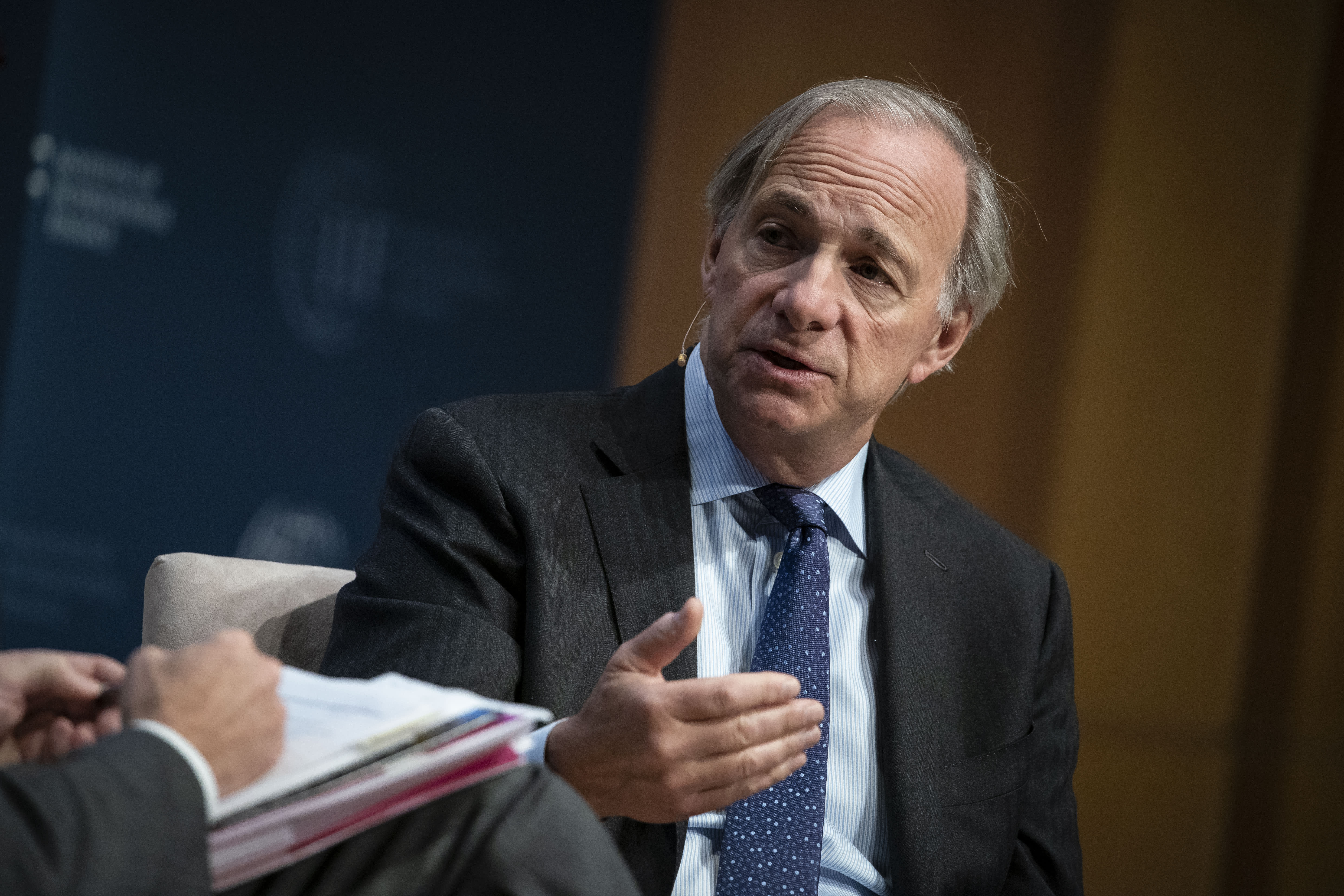Ray Dalio, billionaire and founder of Bridgewater Associates LP, speaks during the Institute of International Finance (IIF) annual membership meeting in Washington, D.C., U.S., on Friday, Oct. 18, 2019.
Al Drago | Bloomberg | Getty Images
Central banks have been giving cheap money to investors who have been injecting it into companies that are often unprofitable and don’t contribute to economic growth, says billionaire hedge fund manager Ray Dalio.
“The system of making capitalism work well for most people is broken,” he wrote.
The founder of Bridgewater Associates, the world’s largest hedge fund, recently put up a LinkedIn post titled: “The World Has Gone Mad and the System Is Broken.” In addition to enormous amounts of cash flowing to investors at ultra-low rates, Dalio also attacked the nation”s ballooning debt and disproportionate access to credit, which is fueling the wealth gap.
“Large government deficits exist and will almost certainly increase substantially, which will require huge amounts of more debt to be sold by governments — amounts that cannot naturally be absorbed without driving up interest rates at a time when an interest rate rise would be devastating for markets and economies because the world is so leveraged long,” Dalio wrote.
The U.S. federal deficit was $984 billion for fiscal 2019. This is a 26% increase from 2018 and the largest gap in seven years.
His post comes days after the Federal Reserve cut interest rates for a third time this year to buffer the U.S. against a slowing global economy and the ongoing U.S.-China trade war. Dalio suggests that it will ultimately fall on the central bank to buy up this debt by printing more money.
“This whole dynamic in which sound finance is being thrown out the window will continue and probably accelerate,” he wrote.
He also took a stab at pension and health care liabilities that are at risk going unmet.
“Right now many pension funds that have investments that are intended to meet their pension obligations use assumed returns that are agreed to with their regulators. They are typically much higher (around 7%) than the market returns that are built into the pricing and that are likely to be produced,” Dalio wrote.
He argues there are only three viable solutions to raise funds required to meet payments: printing more money, slashing benefits, or, as he told CNBC on Tuesday, by raising taxes.
No matter which route the country chooses, Dalio argues that all roads will lead to an exacerbation in the wealth gap.
“If policy makers can’t monetize these obligations, then the rich/poor battle over how much expenses should be cut and how much taxes should be raised will be much worse,” he wrote. “As a result, rich capitalists will increasingly move to places in which the wealth gaps and conflicts are less severe and government officials … will increasingly try to find ways to trap them.”
